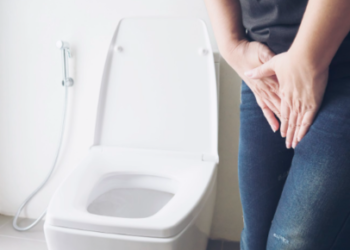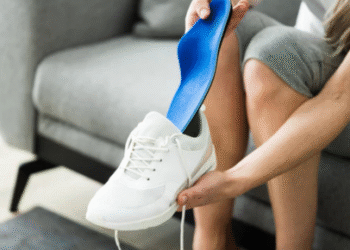1. Understanding Sneezing from Allergies
Sneezing from allergies occurs when your immune system reacts to allergens like pollen, dust, and pet dander. This reaction triggers the release of histamines, causing sneezing as the body tries to expel these irritants.
2. Common Allergens That Cause Sneezing
Common allergens include pollen, dust mites, pet dander, mold, and certain foods. Identifying these allergens is crucial for managing and preventing sneezing and other allergy symptoms effectively.
3. Importance of Avoiding Allergens
Avoiding exposure to known allergens is a key step in preventing sneezing. This may involve making lifestyle changes such as using air purifiers, keeping windows closed, and avoiding outdoor activities during high pollen seasons.
4. Using Over-the-Counter Antihistamines
Over-the-counter antihistamines, such as cetirizine (Zyrtec) and loratadine (Claritin), help reduce sneezing by blocking histamines. These medications can provide relief from allergy symptoms quickly and are easily accessible.
5. Prescription Medications for Severe Cases
For severe or persistent sneezing, prescription medications may be necessary. Options include stronger antihistamines, corticosteroids, or leukotriene inhibitors, which offer more effective relief for chronic allergy sufferers.
6. Nasal Sprays for Quick Relief
Nasal sprays, both over-the-counter and prescription, provide quick relief from sneezing. Saline sprays help flush out allergens, while corticosteroid sprays reduce inflammation in the nasal passages, easing symptoms.
7. Immunotherapy for Long-Term Control
Immunotherapy, such as allergy shots or sublingual tablets, gradually desensitizes the immune system to specific allergens. This long-term treatment can significantly reduce the frequency and severity of sneezing and other allergy symptoms.
8. Keeping Indoor Air Clean
Maintaining clean indoor air is essential for managing allergies. Use HEPA filters in air purifiers and vacuum cleaners, regularly change HVAC filters, and ensure proper ventilation to reduce indoor allergens.
9. Regular Cleaning and Dusting
Regular cleaning and dusting help minimize exposure to indoor allergens like dust mites and pet dander. Use damp cloths for dusting and vacuum with a HEPA filter to effectively reduce allergens in your home.
10. Controlling Humidity Levels
Keeping indoor humidity levels low helps control dust mites and mold, common triggers for sneezing. Using dehumidifiers and ensuring proper ventilation in bathrooms and kitchens can help maintain optimal humidity levels.
11. Washing Bedding Frequently
Wash bedding frequently in hot water to eliminate dust mites and other allergens. Using allergen-proof covers on mattresses and pillows can further reduce exposure and prevent sneezing during sleep.
12. Pet Management Strategies
If you’re allergic to pet dander, regular grooming and bathing of pets can help reduce allergens. Keeping pets out of bedrooms and using air purifiers can also minimize exposure and control sneezing.
13. Avoiding Outdoor Allergens
Avoiding outdoor allergens, especially during peak pollen seasons, is crucial. Check daily pollen forecasts, wear masks when necessary, and limit outdoor activities during high pollen counts to prevent sneezing.
14. Diet and Allergies
Certain foods can trigger or worsen sneezing allergies. Identifying and avoiding these foods, such as dairy or spicy foods, can help manage symptoms. An elimination diet under professional guidance can help identify food allergens.
15. Staying Hydrated
Staying hydrated helps thin mucus, making it easier to expel allergens from the nasal passages. Drinking plenty of water, herbal teas, and clear broths can aid in managing sneezing and other allergy symptoms.
16. Using Essential Oils
Essential oils like eucalyptus and peppermint have anti-inflammatory and decongestant properties. Using these oils in diffusers or as part of steam inhalation therapy can provide relief from sneezing caused by allergies.
17. Stress Management and Allergies
Stress can exacerbate allergy symptoms, including sneezing. Practicing stress management techniques like yoga, meditation, and deep breathing exercises can help reduce the impact of stress on allergies.
18. Herbal Remedies for Sneezing
Herbal remedies like butterbur, stinging nettle, and quercetin have been shown to reduce allergy symptoms. Always consult with a healthcare provider before using herbal supplements to ensure they are safe and effective for you.
19. Nasal Irrigation Techniques
Nasal irrigation with saline solutions helps rinse out allergens from the nasal passages. Devices like neti pots or nasal irrigation bottles can be effective in reducing sneezing and congestion caused by allergies.
20. Avoiding Tobacco Smoke
Tobacco smoke can aggravate sneezing allergies. Avoid smoking and exposure to secondhand smoke to help manage symptoms and maintain respiratory health.
21. Keeping Windows Closed
Keep windows closed during high pollen seasons or on windy days to prevent allergens from entering your home. Using air conditioning and air purifiers can help maintain a clean, allergen-free indoor environment.
22. Wearing Protective Gear Outdoors
When spending time outdoors, wearing sunglasses and a wide-brimmed hat can help reduce exposure to airborne allergens. Additionally, wearing a mask can prevent inhaling pollen and other allergens, reducing sneezing.
23. Seeking Professional Help
If sneezing persists despite taking preventive measures and using over-the-counter treatments, seeking professional help is important. An allergist can conduct allergy testing and develop a comprehensive treatment plan tailored to your needs.
24. Staying Informed and Prepared
Staying informed about allergy triggers and treatment options is key to managing sneezing effectively. Keep up with the latest research, understand your triggers, and be prepared with the right medications to control symptoms.
25. Building an Allergy-Friendly Environment
Creating an allergy-friendly environment involves regular cleaning, using air purifiers, and avoiding known allergens. Making these adjustments can significantly reduce sneezing and improve your overall quality of life.












